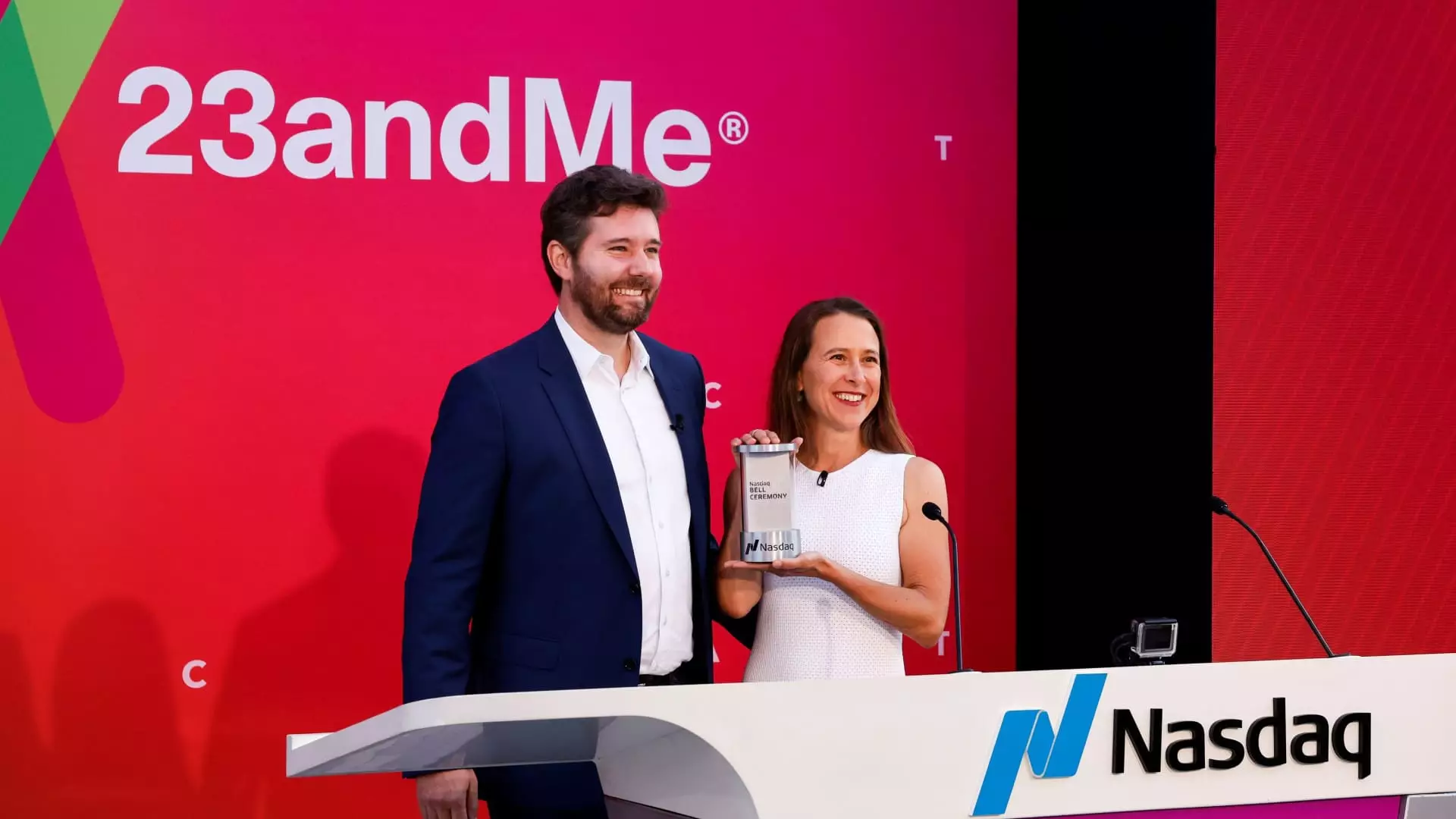Founded in 2006, 23andMe sought to democratize genetic testing by making it accessible to the public through a direct-to-consumer model. With a promising vision to transform the genetic testing arena, the company attracted significant capital investments from high-profile backers and gained traction through celebrity endorsements. This innovative approach enabled 23andMe to differentiate itself from established competitors like Ancestry.com by emphasizing its potential in drug discovery. The company’s public debut in 2021 initially led to a market valuation of approximately $3.5 billion, igniting widespread optimism about its prospects in both the consumer health market and therapeutic developments.
The Initial Momentum: Visionaries and Investment
At the helm, CEO Anne Wojcicki expressed an infectious enthusiasm for the company’s future. In a CNBC interview, she conveyed a sense of readiness to capitalize on the “huge opportunities in therapeutics and the consumer sector.” This initial momentum, however, was built on a precarious foundation. Although 23andMe’s strategy to leverage its expansive genetic database for drug discovery appeared promising, it significantly depended on continued investment and favorable market conditions. The foundation of their financial aspirations was soon challenged by external economic factors, particularly rising interest rates, which severely curtailed the ability to secure additional funding.
The Shift in Market Conditions: Unforeseen Challenges
As the economic landscape began to shift, 23andMe’s sales began to falter. The launch of a premium subscription service in 2020, intended to create ongoing revenue streams, proved to be ineffectual. Instead of bolstering the company’s financial health, the new offering failed to attract enough subscribers, leaving the firm in a precarious financial situation. By the 2023 fiscal year, the company reported a staggering net loss of $312 million—a dire indication of its declining fortunes. The once-promising stock began to tumble, and by September 2023, 23andMe’s share price plummeted below $1, propelling it towards the brink of delisting from the Nasdaq.
Privacy and Security: The Perfect Storm
Compounding financial difficulties, privacy concerns emerged as another critical challenge for 23andMe. In October 2023, a significant breach compromised the data of nearly 7 million customers, casting a shadow over the company’s commitment to safeguarding sensitive genetic information. Such breaches can severely damage consumer trust, particularly in sectors like genetic testing, where privacy is paramount. The fallout from this incident further eroded confidence in 23andMe’s future, prompting some stakeholders to question the sufficiency of Wojcicki’s reassurances regarding customer privacy amidst the crisis.
Adding to turmoil, the resignation of 23andMe’s independent board members in September raised red flags about the company’s governance. Their departure stemmed from reported frustrations with Wojcicki’s strategic vision for the company, indicating deeper rifts within the organization’s leadership structure. The company’s precarious situation manifested in a failed acquisition proposal, which was met with skepticism by a special committee of directors. With a closing share price plummeting candidly below acceptable thresholds, the internal discord compounded the challenges facing 23andMe.
As the November 4 deadline approached, 23andMe found itself at a crossroads. The pressing necessity to stabilize its share price below $1 and the urgency to appoint new board members underscored the critical state of the company. With the backdrop of financial losses, privacy scandals, and strategic discord, the path forward for 23andMe is fraught with challenges that threaten its survival. Navigating through these turbulent waters would require not only robust strategic redirection but also an earnest commitment to rebuilding consumer trust.
The decline of 23andMe offers vital lessons in the realms of strategic planning, corporate governance, and the paramount importance of trust in consumer-focused enterprises. While the dream of revolutionizing genetic testing remains alive in many aspects, the execution of this vision demands an agile and responsive approach to the myriad challenges that arise in a rapidly changing marketplace. As the company confronts its existential challenges, the resilience it can muster may determine whether it can rebound or fade into the annals of failed tech ventures.


Leave a Reply